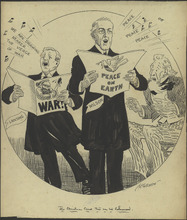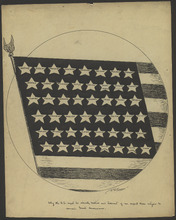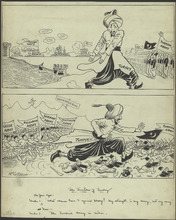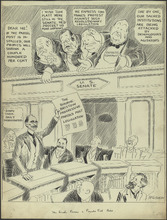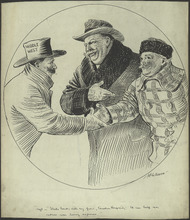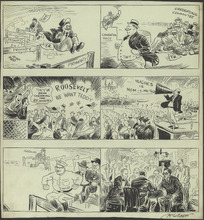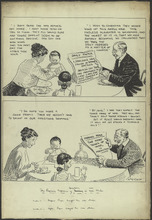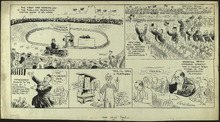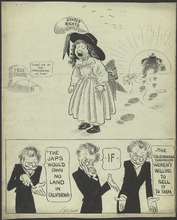JM-160: The Christmas Carol that was not rehearsed
Model
Image
Description
This cartoon highlights and humorizes the lack of agreement between President Woodrow Wilson and his Secretary of State, Robert Lansing. In December of 1916, President Wilson issued a peace note, explaining his position on the United States involvement in World War I. President Wilson wished to help negotiate peace talks between the allies and Germany, which had been recently suggested by Germany. President Wilson also wished to keep the United State a neutral party within World War I, not providing military support to either side. In this peace note, Lansing offered an addendum saying, "The United States already in the war economically, was being drawn in militaristically." This caused a great upset in the Wilson administration as the President tried to emphasize the need for peace without completely discrediting his Secretary of State. The cartoon highlights this discomfort by showing Lansing and President Wilson essentially singing a different tune. A shocked Uncle Sam (citizens of the United States) sits listening to the pair and is unsure what to think of the spectacle. This cartoon uses Christmas carols as a humorous reminder that this incident occurred within the week before Christmas in December of 1916, less than six months before the United States would eventually enter World War I. (Summary created by Mary Delano, MU History Intern, Spring 2018)
Service File - Download
